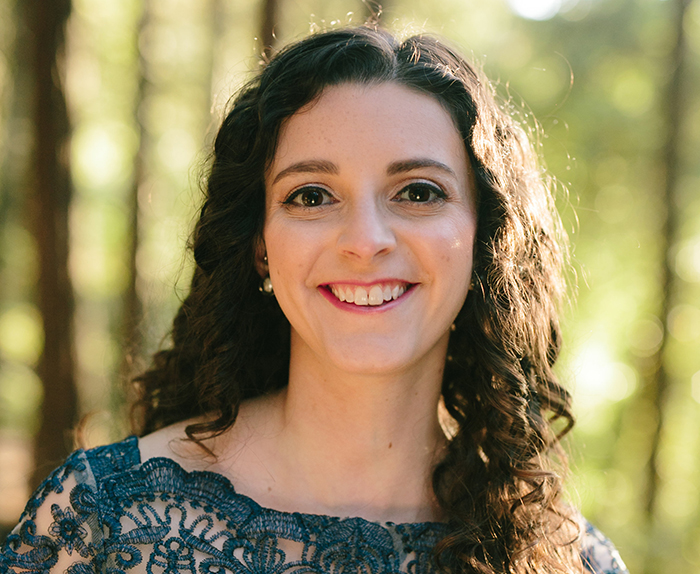We’re taking time over the following weeks to get to know the members of the GSA’s Early Career Scientist Committees. Join us every week to learn more about our early career scientist advocates.

Jo Downes Bairzin
Policy Subcommittee
University of California, Berkeley
Research Interest:
Cancer is a scientific and medical conundrum that affects millions of people a year. It’s a difficult problem to address because cancer is not one single disease; instead, it encompasses the many malfunctions that can cause cells to grow uncontrollably, evade the immune system, and invade healthy tissues. Scientists have taken numerous approaches to decode how cancer works, and one of those approaches is furthering our understanding of the normal biological processes co-opted by cancer. Cancer often activates signaling pathways that are only involved in development, causing abnormal expression of patterning genes in tissues where they aren’t normally active. My research uses a fruit fly model of cancer to study how stable patterning gene expression is disrupted in tumors and what role this phenomenon plays in tumor growth and malignancy. Findings from my research could provide new targets for cancer therapy or markers with which to diagnose and understand different tumor types.
As a PhD-trained scientist, you have many career options. What career paths interest you the most?
One thing my graduate training has taught me is that, while it can be highly satisfying to delve deeply into a specific scientific problem, there is a great need for PhDs who can think critically about a wide range of topics—and more importantly, who can use those critical thinking skills to help non-scientists understand complex topics and make decisions based on that knowledge. Because of this, I am preparing for a career in either science policy or science communication. The skills I have developed during my scientific training will enable me to effectively advocate for better public understanding of and support for science. I look forward to bridging the gap between scientists who are passionate about their research and non-scientists who want to learn about scientific advances and their relevance to the world. Doing this in a capacity that impacts policy would be very meaningful work.
Even at the best of times, scientists sometimes struggle to engage with the public about their work. This leads to inefficient or incorrect applications of scientific findings to public policy, or worse yet, disregard for science entirely. It is important for scientists to be vocal about why their research matters and how the general public can benefit from it. Beyond this, we must have scientists involved in the policymaking process, either by running for office themselves, making themselves available to advise policymakers, or being visible, vocal constituents. Most elected officials and their staffs are not trained scientists, though they certainly want to understand how complex research findings can inform the policies they construct and how best to apply new research. This is an opportunity for scientists to use their communication skills and specialized knowledge to help elected officials create better policy. If scientists want to maximize the impact of their work, they must include non-scientists in conversations about what their research means and why it’s valuable.
In addition to your research, how else do you want to advance the scientific enterprise?
As an early career scientist, it is important that I contribute to improving the academic research training experience for graduate students and postdoctoral scholars. PhD training is focused on preparing students for academic research careers, even though many PhDs ultimately seek careers outside of research-intensive roles in academia. These careers require a more diverse skill set than can be obtained through traditional research training alone.
PhDs who wish to stay in academia are competing for a vanishingly small number of tenure-track faculty positions after investing years of training. Graduate training often lasts five to seven years, and postdoctoral training can last four years or more. While early career scientists develop valuable research skills, postdoctoral positions are characterized by low compensation and often lack benefits found in full-time jobs outside of academia.
Perhaps most unfortunate are those who complete postdoctoral training only to find themselves unable to secure a tenure-track faculty position; the years spent doing low-paid postdoctoral research carry an opportunity cost that may never be made up. To make matters worse, these PhDs who don’t end up becoming tenured faculty often don’t get trained in other skills necessary for success in a non-academic job, even though they’ve had years of postdoctoral experience. Thus, they go into the job market over-trained in skills they may not use and under-trained in skills they need.
At the core of this problem is academic science’s reliance on early career scientists to do the bulk of research and discovery work and focus on producing research findings that lead to grant funding and prestige. Because of the disconnect between the training experience and PhD career outcomes, it is critically important that research training programs prepare early career scientists for a greater number of careers. It is not possible to supply an adequate number of stable academic research jobs at current funding levels. However, the academic system is dependent upon this exchange of training with lower wages for research and discovery labor. To continue attracting qualified early career scientists, the training experience must be a worthwhile investment that leads to a valuable career outcome.
As a leader within the Genetics Society of America, what do you hope to accomplish?
As a member of the policy subcommittee, I hope to use the reach of the GSA to communicate information on career options and professional development opportunities to the affiliated community of biologists and to be an ally in helping to improve graduate training. It’s sometimes hard for graduate students and postdocs to learn about career and training options outside of academia, and the GSA is well-positioned to provide that information to people who need it via weekly newsletters and outreach to training programs. The policy subcommittee is working to compile a searchable database of policy fellowships for those who seek to use their scientific expertise in shaping government decisions. This database will be a valuable centralized resource as it will eliminate the burden on interested scientists to track down and manage information for multiple different individual fellowships independently while they also manage their research projects. Perhaps more importantly, we are working to provide transparent information directly from fellowship program officers about what they’re looking for in an applicant so that members of the GSA can better prepare before they apply.
Previous leadership experience
- Art Director – Berkeley Science Review
- Co-Director, Outreach & Social Media – Berkeley Science Review
- Public Policy Intern – American Institute of Biological Sciences
- Delegate – UC Berkeley Graduate Assembly
- Mentor – National Science Foundation Research Experience for Undergraduates program, University of California Berkeley
- Team Leader – Bay Area Scientists in Schools (BASIS)
Contact
- Twitter: @josephine__q
- Website: https://jobairzin.wordpress.com/































